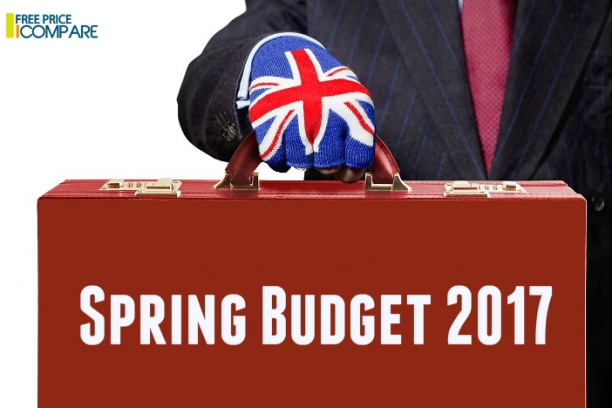The Spring Budget 2017 was announced amidst much anticipation however, many feel that it was not the best job done by the exchequer. Although, he covered different dimensions and tried to create a balance between various sectors, the budget is still not considered an exciting one by the experts. Some of the points work well on a long term basis while some are good for immediate effect.

Let us check the effect of the budget:
What is the effect of the Spring Budget 2017 on families?
The Chancellor was considerate of ordinary families and has announced some measures that bring relief for families facing the aftermath of Brexit. The tax-free personal allowance was raised from £11,000 to £11,500, which means they don’t have to pay tax on an extra £500 of their hard earned money. People earning low wages would also be happy as the budget announced an increase in the National Living Wage from £7.20 to £7.50 an hour.
Some of the Brits may feel that these declarations are not enough and may still struggle with finances. They can take help from Citizen Advise or the nationaldebtline.org, which is a debt charity that helps people sort out their financial issues. Apart from all this, families would still need to keep their budget in limit so as to make savings amidst the ever rising household bills.
Effect of budget on working parents:
The Chancellor made an announcement of tax free childcare scheme which would be launched in April along with doubling free early education or childcare hours from 15 to 30, with effect from September. The new scheme will facilitate families with £2,000 a year as the cost of childcare for children under 12. For this, the parent should be working at least 16 hours per week and earn over £100 per week.
Although, this much help may not make a significant difference in child care, you can still feel a sense of support from the government. To save the cost of childcare you can always rely on your family like grandparents that can lend a helping hand while you juggle between home and work.
For those who want to make savings:
Saving has become a necessity now and so, the Chancellor has pushed the Isa allowance from £15,240 to £20,000 with effect from April this year. There was an announcement of new fixed-rate bond from NS&I, which would pay 2.2 per cent to the investor. This would be launched in April but may not be the best solution for making big savings.
Budget announcements for car drivers:
Fuel duty freeze would continue but, drivers need to be careful about the 12% hike in Insurance Premium Tax (IPT) from June. This would add £109 to annual insurance costs making it unbearable for the motorists. Even the announcement of decrease in interest rates while paying severe injury compensation would add £60 on average to premiums and £107 for drivers under 25.
To combat these hikes, you should shop around to buy the cheapest car insurance policy. This could save you over 33% from the insurance cost and paying lump sum premiums would be cheaper than paying monthly. Enhancing the safety and security features of a vehicle will also further help in cutting down insurance costs.
Budget and the self-employed class:
The Chancellor has taken away the smiles from people who are self employed and have their own business. By increasing the National Insurance (NI) contributions from 9% to 10% from April 2018 and to 11% from April 2019, the budget has made the business owners angry and frustrated.
To sum up, the budget was reasonably good but not the best for people who are already facing the hike in prices. The Chancellor did not give room for property ownership and had nothing in store for the motorists as well as energy consumers who may face adverse results of price hikes in the coming future. The only piece of advice is that you need to keep saving for your family. Leverage schemes that help in cutting down costs so as to save you from overspending. Look out for discounted daily deals on FreePriceCompare and leverage its price comparison service for various sectors.
Author Bio:
Arjun Vishram is a financial advisor at FreePriceCompare.com UK’s leading price comparison website. He suggests all UK households to compare energy prices and switch to the fixed price tariff offered by top rated supplier.
No comments:
Post a Comment